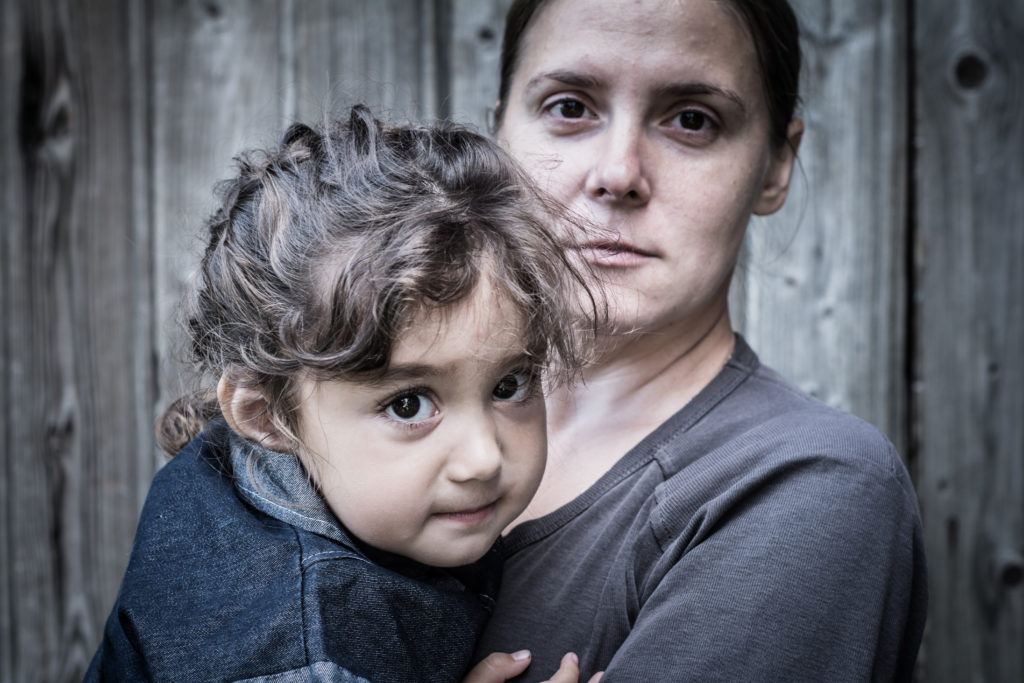Researchers have raised alarm bells on inequity during the pandemic, suggesting that women are shouldering a heavier burden and this inequity may continue post-pandemic. One law professor adds vital evidence to this claim and, most importantly, offers policy-applicable suggestions for improvement.
Osgoode Hall Law School Professor and nationally recognized lawyer Fay Faraday is passionate about social and economic justice. Dedicated to serving the most marginalized and vulnerable populations, she undertakes research to advance knowledge and create positive change.
She recently co-wrote a landmark public policy paper on building gender equality into the pandemic recovery: "Resetting Normal: Women, Decent Work and Canada's Fractured Care Economy" (2020). This timely report makes some transformational suggestions, including granting permanent residence status to all migrant care workers currently in Canada and ending privatization of long-term care.

“Women in Canada have been disproportionately impacted by the COVID-19 pandemic to an extent that threatens to roll back equality gains,” Faraday warns. This new paper, which she co-authored with the Canadian Women’s Foundation, the Canadian Centre for Policy Alternatives and the Ontario Nonprofit Network, analyses gender equality during the pandemic. It also puts forward concrete solutions designed for policy-makers – new ways to build a gender-equal Canada in pandemic recovery efforts.

Findings reveal just how much COVID has affected vulnerable people
Faraday sensed that COVID-19 would bring to the fore the structures that create social and economic marginalization. She suspected that any investigation into the pandemic would reflect the harrowing experiences of many people living precariously both economically and socially. She also knew that the services people depend on would be stretched to the limit.
She was right. But what her investigation exposed most profoundly was the systematic undervaluing of paid and unpaid care work. This paper, markedly comprehensive, looked at long-term care, at childcare, at violence against women, and the emergency and support systems that existed to help.
Pandemic has been catastrophic for women
Women in particular are suffering, Faraday and her co-authors emphasize. “The crisis has exposed the catastrophic inadequacy of employment for many women. On the frontline containing the pandemic, women are working in low-wage, precarious care positions at high risk of infection – jobs where intersecting inequalities and gender-biased public policy have concentrated racialized, Black, migrant and undocumented women.
“Women who are least likely to have the financial means to weather unemployment have taken the greatest hit in months of job losses so severe that equality gains are under threat,” she adds.
Faraday believes that unless recovery planning eliminates gender bias and systemic discrimination from economic and social policy, economic recovery is not possible.
But how to do this is the real challenge. That’s where this 42-page paper truly shines.
Paper offers a roadmap for change
Faraday’s paper includes a veritable roadmap on how to do things better; how to invest in quality care services, care policies and care-relevant infrastructure to reduce barriers and advance inclusion, gender equity and gender equality.

More specifically, she and her co-authors make three, transformational recommendations:
1. Invest: Revitalize social infrastructure through investments. This includes things like:
a. Invest in services, policies and infrastructure designed to reduce social and economic barriers and advance gender equality and inclusion.
b. Establish, enforce and monitor Canada-wide standards for services based on evidence-based best practices. Staffing levels, training, service management, and delivery and protection of labour rights in the care economy would be key areas for investment.
c. Establish policies and programs to assist with the cost of care work. These would specifically target women living on low incomes and their families.
2. Value: Ensure that care work is decent work. This would be facilitated by the following steps:
a. Develop a long-term care labour force strategy based on appropriate valuing of the skill, effort, responsibility and working conditions; and support for equitable, decent conditions of work.
b. Raise federal, provincial and territorial employment standards and funding to a level that ensures decent work for all workers, including care workers.
c. Ensure that migrant care workers have decent work. This could be accomplished by granting permanent residence status to all migrant care workers currently in Canada, including migrant care workers who have become undocumented; and by ensuring that future migrant care workers have secure permanent residency status on arrival in this country.
3. Transform: Focus public investments on transforming care sectors. This includes:
a. In long-term care: End privatization and expand publicly managed non-profit long-term care facilities and home care services, childcare and violence against women and gender-based violence services.
b. In childcare: Increase public investment to ensure that women, and parents of all genders, can return to work and, on a larger scale, stimulate recovery.
c. In violence against women and gender-based violence services: Co-develop and implement a long-term National Action Plan on Violence Against Women and Gender-Based Violence.
There’s no doubt that this paper has great potential to facilitate meaningful change. “Our work could inform policy on how to build a care economy centred on equity, equality and shared prosperity working with care workers, including migrant care workers; care recipients; unpaid caregivers; and feminist economists,” Faraday underscores.
To read the policy paper, visit the website. To learn more about Faraday, visit her Faculty Profile page.
To learn more about Research & Innovation at York, follow us at @YUResearch; watch our new animated video, which profiles current research strengths and areas of opportunity, such as Artificial Intelligence and Indigenous futurities; and see the snapshot infographic, a glimpse of the year’s successes.
By Megan Mueller, senior manager, Research Communications, Office of the Vice-President Research & Innovation, York University, muellerm@yorku.ca
